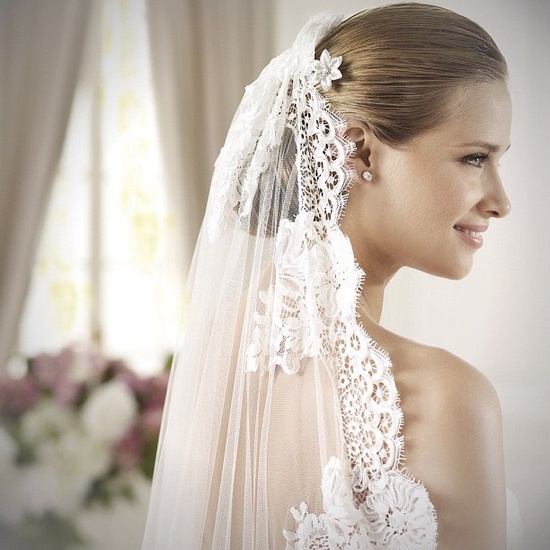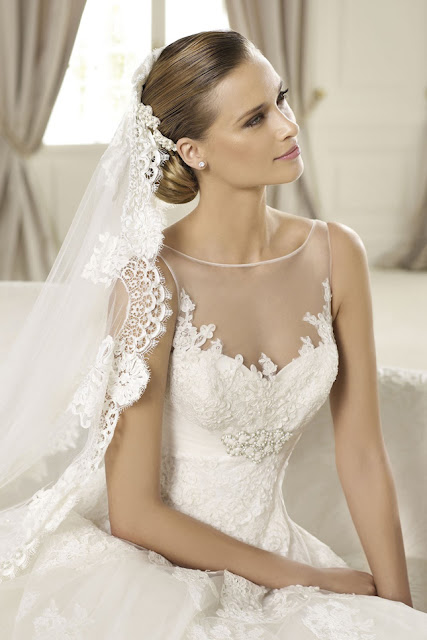In ancient Greece and Rome, the veil became a protection against evil spirits, though there is little evidence that this survived the Christian era. In medieval Europe, the influence of Arab culture grew with the rise of Islam. Arab music, science and art, all came to influence the splintered states of Europe and as the later crusaders returned from the east with wealth and riches; the veil was popularized as everyday wear for women.
It is in these times that the veil came to symbolize modesty and purity. The flowing white veil became a sign of virginity. Thus, only first-time brides wear a veil. The groom's lifting of the veil signifies his acceptance of the bride. He unwraps his bride as he takes possession of her. Hence, a bride traditionally was given away while a man took a wife. These days, many brides lift their own veils, presenting themselves as equals.
In the modern wedding ceremony, the bridal veil should complement the bridal gown; and so, the most popular colours are white, diamond white, and ivory. Today, veils of tulle and nylon have come to prominence, though old veils - especially family heirlooms - are still considered lucky. It's still commonly said to be 'bad luck' for grooms to see their brides before the ceremony, so perhaps the veil is still offering protection against bad luck.
Mantilla or Spanish Veils and Vintage Juliet Cap Veils are making their way back on the runways and becoming the hottest trends. Here are a few for your inspiration. Both veils have forms of the bride being covered and uncovered.
A mantilla veil covering the face
The Juliet cap veil,so vintage,so chic...this veil is really trending right now. Its no surprise though as global fashion icons like Jackie Kennedy opted for the style,and she is clearly the epitome of chic.
the lovely Grace Kelly
xoxo














